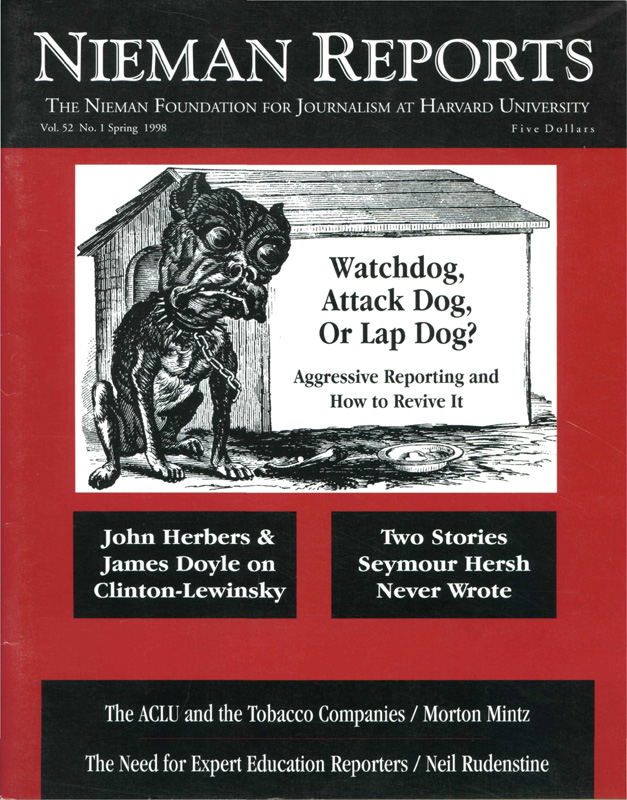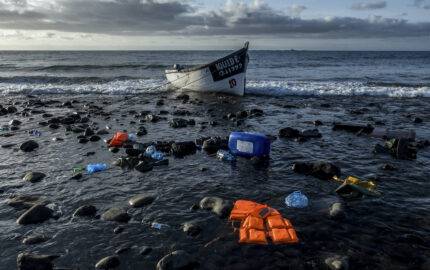Watchdog
Spring 1998: Watchdog Introduction
This issue on Watchdog Journalism originated with a call by Murrey Marder, the retired Washington Post Diplomatic Correspondent, for a return to more aggressive, but responsible, reporting. The package begins with two articles on the media's handling of the accusations that President Clinton had an improper sexual relationship with Monica S. Lewinsky. Excerpts from a seminar by Seymour Hersh, the Pulitzer Prize-winning investigative reporter, follow. Then we offer position papers on the status of watchdog journalism in four areas—the economic sector, state and local government, national security and nonprofit organizations.

Watchdog, Attack Dog, or Lapdog?
This issue on Watchdog Journalism originated with a call by Murrey Marder, the retired Washington Post Diplomatic Correspondent, for a return to more aggressive, but responsible, reporting. The package begins with two articles on the media's handling of the accusations that President Clinton had an improper sexual relationship with Monica S. Lewinsky. Excerpts from a seminar by Seymour Hersh, the Pulitzer Prize-winning investigative reporter, follow. Then we offer position papers on the status of watchdog journalism in four areas—the economic sector, state and local government, national security and nonprofit organizations.
March 15, 1998
Share this article

This section on Watchdog Journalism originated with a call by Murrey Marder, the retired Washington Post Diplomatic Correspondent, for a return to more aggressive, but responsible, reporting. The package begins with two articles on the media's handling of the accusations that President Clinton had an improper sexual relationship with Monica S. Lewinsky, a former White House intern, one by John Herbers, the other by James Doyle. Excerpts from a seminar by Seymour Hersh, the Pulitzer Prize-winning investigative reporter, follow. Then we offer position papers on the status of watchdog journalism in four areas—the economic sector, state and local government, national security and nonprofit organizations. Each of these papers is followed by responses from selected journalists.
Watchdog, Attack Dog, or Lapdog?
This issue on Watchdog Journalism originated with a call by Murrey Marder, the retired Washington Post Diplomatic Correspondent, for a return to more aggressive, but responsible, reporting. The package begins with two articles on the media's handling of the accusations that President Clinton had an improper sexual relationship with Monica S. Lewinsky. Excerpts from a seminar by Seymour Hersh, the Pulitzer Prize-winning investigative reporter, follow. Then we offer position papers on the status of watchdog journalism in four areas—the economic sector, state and local government, national security and nonprofit organizations.




